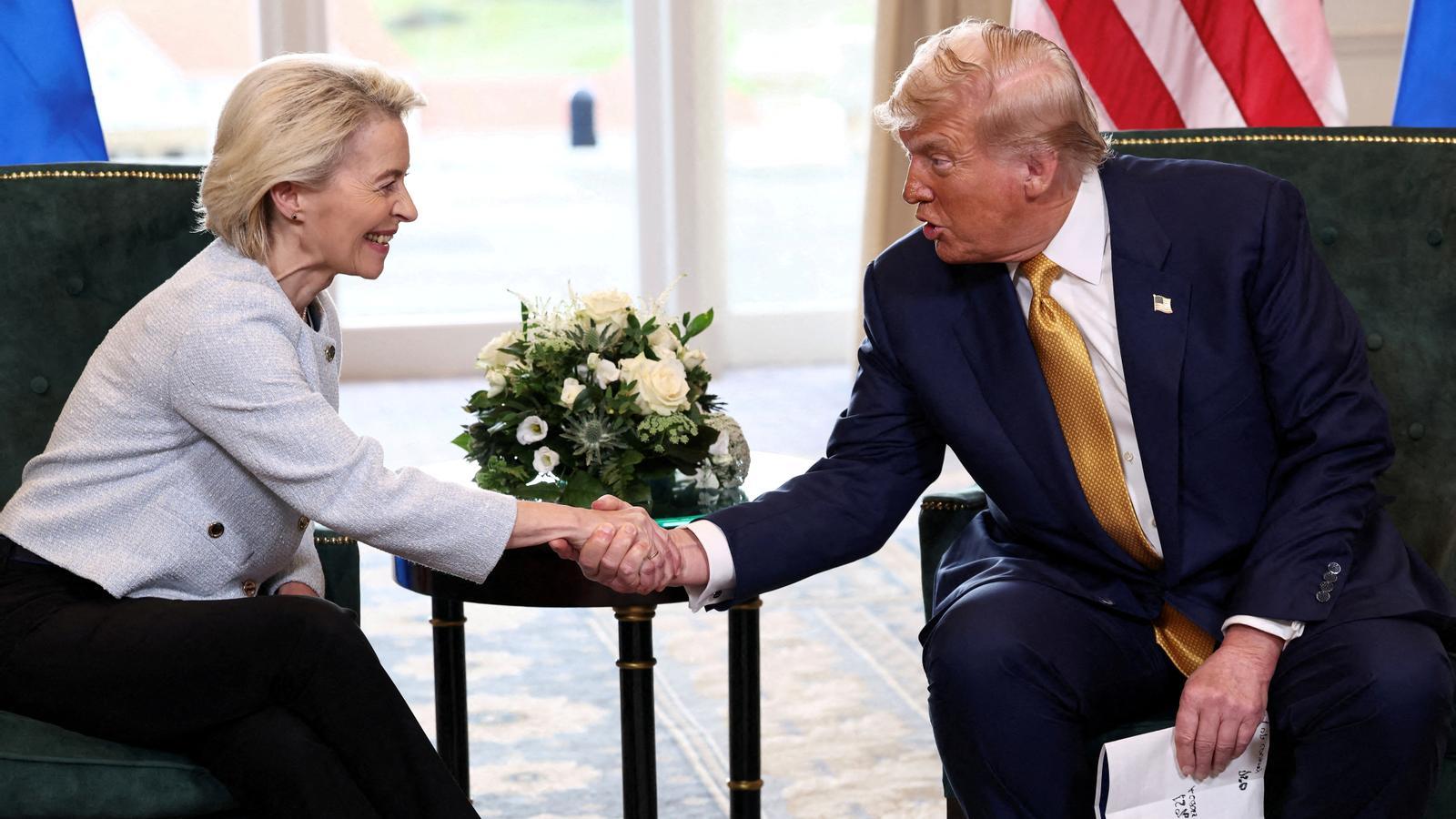The EU-US agreement: little to celebrate, but it could have been worse


It could have been worse. This, and the fact that it reduces uncertainty, is the best that can be said about this agreement. As the weeks go by, we will need to learn the missing details, such as a text that still doesn't exist, the final list of products, the amount of military equipment purchases, or a more precise idea of the investments to be made, for example. However, based on the data released so far, the agreement will not facilitate some of the roadmap measures that Europe had agreed upon following the Letta and Draghi reports.
The new 15% tariff on most European exports agreed between the EU and the US is higher than the 10% tariff agreed with the United Kingdom (which, in addition, is exempt from the increased tariffs on steel and aluminum) and equal to the one recently imposed with Japan. But it will replace the 10% basic tariff imposed universally (except in Canada and Mexico) since April 5 and other previous ones. Therefore, the impact will be relatively manageable for European exports, especially since we had already received the first dose with the basic tariff. But there will be an impact, because the final tariff is at least three times higher than the level in place before Trump's return. In fact, Catalan and Spanish exports to the US have already felt the effect of the basic tariff in April and May, with drops of around 14%-15%, although they could also be partially offsetting the advance purchases from the previous quarter. However, the main trade impacts will be indirect, that is, those that will come via EU third countries also affected by the agreement. We will have to see how this reduction in uncertainty is interpreted by companies in their orders. What is clear is that the joys of the foreign sector in past years will not be repeated this year, and this will slow growth in 2025.
In the medium and long term, we must rely on the demonstrated capacity of Catalan companies to open new markets. Pharmaceutical products, if confirmed, will breathe a sigh of relief because they would be among the products excluded from the agreement, but other sectors will suffer, particularly the agri-food sector.
The agreement includes other items that are as important as, or even more important than, the tariffs. The commitments made regarding investments to be made by the EU in the US ($600 billion) are among the aspects that are still unclear. They appear to be in effect for the remainder of Trump's term (thus, until 2028), and consequently, the agreed volume more than doubles the current flow of investment already occurring. A diversion of investment of this magnitude could affect the EU's reindustrialization plans. Companies that agree will be able to obtain the generous benefits of the IRA Act (Inflation Reduction Act), passed in 2022 during the Biden administration.
The "significant," but unrealized, purchases of military equipment in the US could also dilute the slim hope that NATO's commitments to increased military spending might have held for the European defense industry. In a way, everyone knew this would happen, but the initial data on the share price performance of major European defense companies suggests that investors haven't taken it very well.
The agreed energy purchases (750 billion euros), also expected to be made over the next three years, will replace those still being made in Russia, but at the cost of higher prices, especially for liquefied gas, which will also affect the price of electricity. We will replace one dependency with a more expensive one. But the Ukrainians will thank us for it.
But the big event yet to come, and about which we still know little, is the future agreement that China may establish with the US. The consequences could affect us as much as, or more than, the agreement signed now, because it could lead to a greater influx of Chinese products into Europe. We must be very vigilant.
In short, there is little to celebrate, but it could have been worse.
